You are here
New Releases
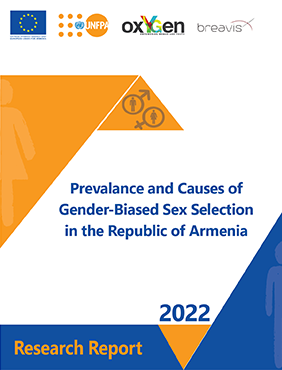
Prevalence and Causes of Gender-Biased Sex Selection in the Republic of Armenia
The research was carried out in the framework of “Addressing Gender-Biased Sex Selection and Related Harmful Practices in the South Caucasus: Support for Regional, National and South-South Interventions” project. The project is implemented by the United Nations Population Fund (UNFPA) in cooperation with the OxYGen Foundation, and is funded by the European Union and UNFPA.
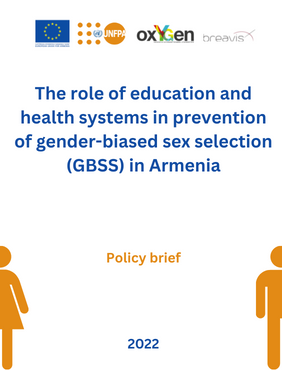
The role of education and health systems in prevention of gender-biased sex selection (GBSS) in Armenia
This policy brief presents recommendations based on the results of the survey aimed to assess the prevalence and causes of sex-selective abortions conducted in June 2022 in Armenia.
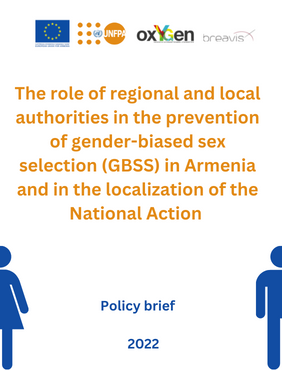
The role of regional and local authorities in the prevention of gender-biased sex selection (GBSS) in Armenia and in the localization of the National Action Plan
This document presents recommendations on expanding the role of regional and local authorities in the prevention of GBSS.
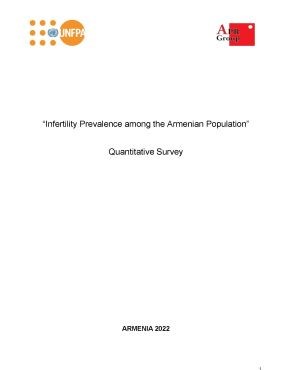
“Infertility Prevalence among the Armenian Population” Quantitative Survey
This report presents the methodology and findings of the quantitative survey. It describes in details social-demographic characteristics of respondents, their livelihood, sexual life, issues of use of contraceptives, abortion attempts, outcomes of pregnancy, as well as a number of other questions related to health condition. To define infertility prevalence, groups of respondents have been selected that are considered infertile, fertile and potentially fertile as well as people with unknown status of fertility. This report summarizes description of those groups according to social-demographic indicators, livelihood conditions and other indicators defining health condition. The report offers a number of recommendations which are necessary to consider when initiating reforms in the sector and development of policies.

Resource package on engaging men during pregnancy and childbirth
The Resource Package on Engaging Men During Pregnancy and Childbirth was developed in the framework of the “EU 4 Gender Equality: Together against gender stereotypes and gender-based violence” programme, funded by the European Union, implemented jointly by UN Women and UNFPA in Armenia, Azerbaijan, Belarus, Georgia, Moldova, and Ukraine. The resource package is intended to help healthcare providers in Eastern Europe and Central Asia (EECA) better engage men during pregnancy and childbirth to improve the health and well-being of their partners and children, as well as for their own health, wellbeing, ability to bond, and feelings of connectedness.
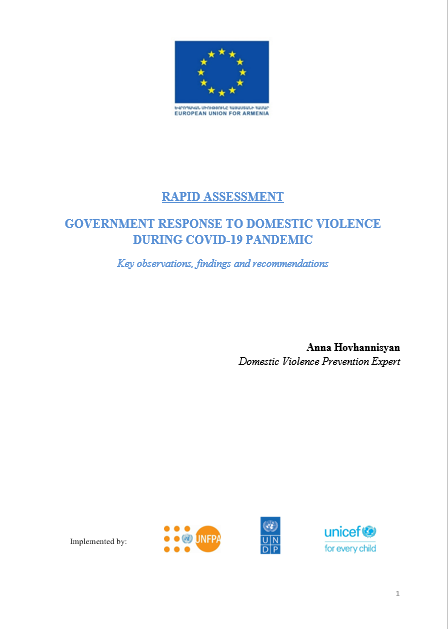
Rapid Assessment of Government Response to Domestic Violence During COVID-19 Pandemic
Rapid Assessment on Government Response to Domestic Violence During COVID-19 Pandemic.
The Assessment was conducted within the EU funded " Promotion and Protection of Human Rights in Armenia" Project, implemented jointly by UNDP, UNFPA and UNICEF.
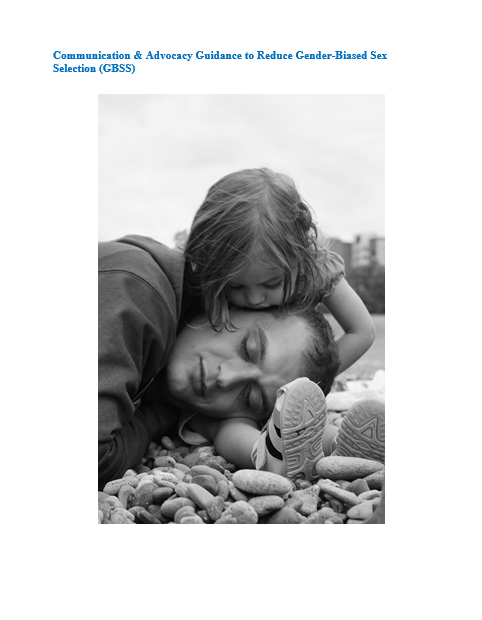
Communication & Advocacy Guidance to Reduce Gender-Biased Sex Selection
This guidance document has been prepared as part of the United Nations Population Fund (UNFPA)’s Global Programme to Prevent Son Preference and the Undervaluing of Girls, with funding from the European Union (EU), for the period 2016-2019. The programme is being implemented in Azerbaijan, Armenia, Bangladesh, Georgia, Nepal, and Viet Nam. The programme’s overall objectives include South-South learning among the six programme countries, as well as building on the experiences and lessons learned by China, India, Republic of Korea and other countries that have launched laws, policies and programmes to address son preference and sex-selection. For this reason, many examples are included throughout this guidance document from past and current initiatives. The International Children’s Center (ICC), a non-governmental organization based in Ankara, Turkey, is working with UNFPA to support the Global Programme for the period 2018-2019.
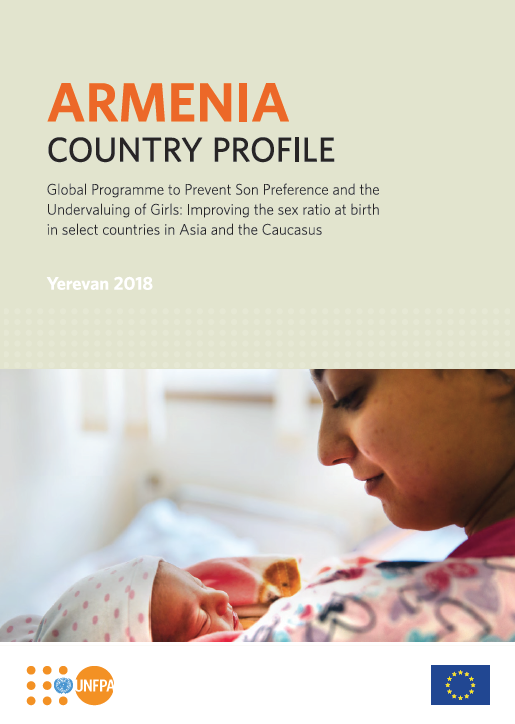
Armenia Country Profile: GPPSUG to improve in select countries in Asia and Caucasus
This country profile was developed by the United Nations Population Fund in Armenia as part of the UNFPA Global Programme to Prevent Son Preference and the Undervaluing of Girls: Improving the sex ratio at birth in select countries in Asia and the Caucasus. The programme is funded by the EU and implemented by UNFPA in partnership with the governments, civil society and academia in six countries: Armenia, Azerbaijan, Bangladesh, Georgia, Nepal and Viet Nam. This is the first global programme of its kind, it works with partners to gather information about the root causes of this harmful practice and to raise up the value of girls and women. The programme is managed by the Gender, Human Rights and Culture Branch of the Technical Division of UNFPA Headquarters in cooperation with the UNFPA Regional Offices of Asia Pacific and Eastern Europe & Central Asia.
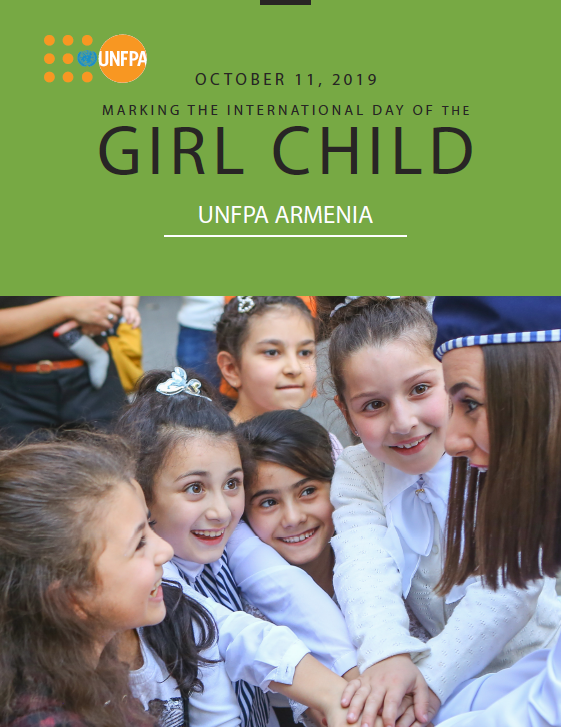
MARKING THE INTERNATIONAL DAY OF THE GIRL CHILD 2019
NEWSLETTER ON MARKING THE INTERNATIONAL DAY OF THE GIRL CHILD 2019
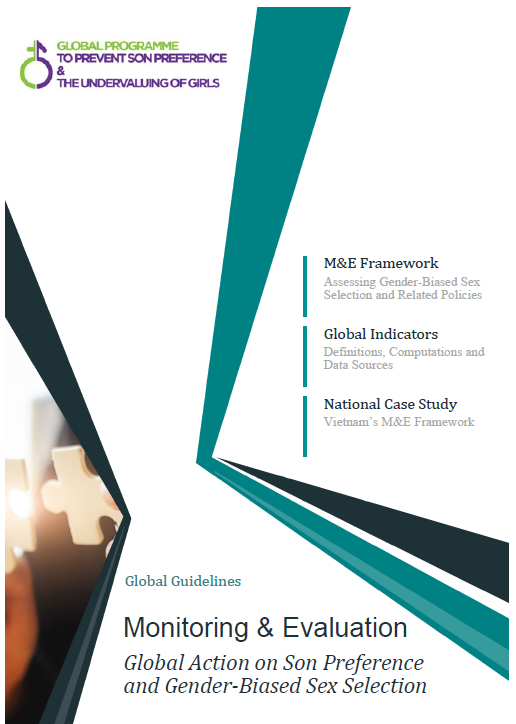
Monitoring & Evaluation Framework
Since the 1980s a growing number of countries have witnessed a rise in their sex ratios at birth beyond the biological norm of 105 male per 100 female births. The trend started in Asia (India, South Korea and China) and spread to the Caucasus (Armenia, Azerbaijan and Georgia) and parts of Eastern Europe (Albania, Montenegro) in the 1990s, and more recently to countries like Vietnam and Nepal.
Behind this phenomenon lay entrenched son preference and undervaluing of girls. National and international organizations have become increasingly alerted and a
number of countries have introduced laws, policies and programmes to prevent the further demographic masculinization, which will affect populations for generations to
come. However, little is known about policies and their efficacy in curbing skewed sex ratios at birth. In 2016, the first Global Programme to Prevent Son Preference
and the Undervaluing of Girls was launched by UNFPA with the support of the European Union (EU) to improve the knowledge base and inform policies and
programmes to tackle gender-biased sex selection (GBSS). The present Monitoring and Evaluation (M&E) Framework was developed as part of this Global Programme.